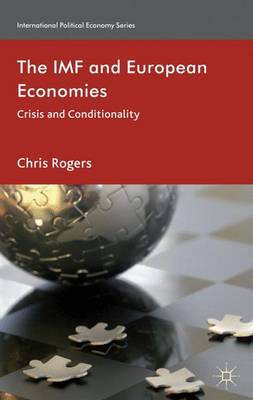International Political Economy
1 total work
With global markets in turmoil, financial crisis management is the vital topic of this decade. Examining the role that the International Monetary Fund has played since 1976, this volume explores: Britain's stand-by from the late 1970s, the Fund's apparent marginalization in the global economy following the Asian financial crisis, and early responses to the Greek sovereign debt crisis. By focusing on the ideas and interests of domestic policy-makers, Rogers is able to demonstrate how the Fund has been used by domestic economic policy-making elites to reconcile contradictions between accumulation and legitimation that appear inherent to the social relations of capitalism.
